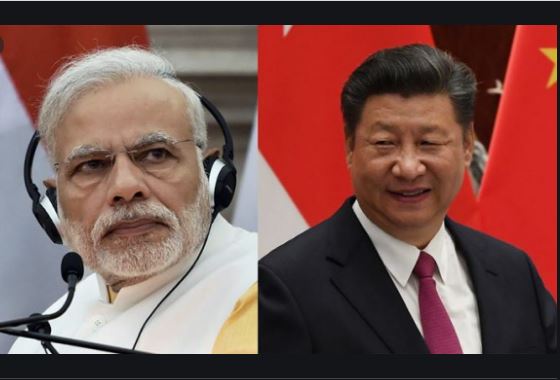
By Venkatesh Iyer
Bengaluru: Suspecting data theft and espionage, the Government of India is reportedly studying seven major Chinese companies having deep links with the Peoples’ Liberation Army (PLA) and may take action against them.
This comes close on the heels of the ban imposed recently on TikTok and 58 other apps due to security concerns following the Galwan Valley clash in Eastern Ladakh region between the two armies, in which 20 Indian soldiers were martyred a few weeks ago.
According to an internal study done by the government in 2018, some Chinese investors had already gained control over certain Indian start-ups through joint ventures. E-commerce, online lending and social media content were the highest three market segments in terms of the number of companies receiving Chinese funding. They are now on India’s radar.
Intelligence sources have highlighted that seven companies having links with the PLA include Alibaba, Tencent, Huawei, Xindia Steels, Xinxing Cathay International Group, China Electronics Technology Corporation (CETC), and Shanghai Automotive Industry Corporation (SAIC).
Having direct or indirect links with the PLA, they may now face possible charges like data’s diversion, theft, misuse and espionage.
Some companies even in the China-owned automobile sector are on the radar. They include SAIC Motor Corporation, a large automobile company headquartered in Shanghai, and the parent company of sports utility Vehicle MG Hector in India.
A subsidiary of Nanjing Automobile, which was previously a vehicle servicing unit of the PLA, and metal products manufacturing company Xinxing Cathay International Group are present in India in various forms, including a joint venture Xindia Steels Ltd.
Some employees of CETC have even been convicted of military espionage. It provides technology which is believed to be used for human rights abuses in the restive western province of Xinjiang in China. The company has invested Rs 320 crores in a manufacturing facility in Andhra Pradesh in 2018 and recently commissioned a 0.8 mtpa iron ore palletization facility in Karnataka’s Koppal district, near Hospet, at a total cost of slightly over Rs. 250 crores.
The USA has already banned government agencies from buying Hikvision CTV cameras produced by CETC. These cameras are increasingly misused by China’s surveillance officials to suppress 11 million Muslim Uighurs through their facial recognition and gives a free rein to a harsh state-sponsored clampdown.
Chinese telecom major Huawei was founded by Ren Zhengfei, a former deputy director at the PLA’s engineering corps. It reportedly had revenues of Rs 12,800 crore in FY19 from its Indian operations. The company is now facing trustworthiness issues on its proposed global 5-G rollout, from countries like the USA, the UK, Japan, and Australia.
Technology giants like Alibaba and Tencent were part of the Chinese military and civil combine in Artificial Intelligence (AI) projects. A 2019 report of US-China economic and security review commission stated that under China’s military-civil fusion policy government-supported mechanisms, including venture capital funds, are being used as influencing the fruit of civilian innovation for China’s defence sector.
Alibaba, along with Ant Financial, has invested in six Indian start-ups like online fintech co PayTM, PayTM Mall, food delivery platform Zomato, grocer BigBasket, e-commerce platform Snapdeal, logistics express Xpressbees and others. Except Xpressbees, all these start-ups have emerged as unicorns in India (valued at over US$1 billion).
Alibaba’s founder Jack Ma was recently said to have helped in image-makeover of China after the country suffered a major negative publicity due to its alleged role in the spread of global pandemic of Covid-19.
Tencent, producer of popular gaming apps like PUBG, Call of Duty, Fortnite etc., has made 16 mega investments in all the rival companies of Alibaba by investing in Indian food delivery platform Swiggy, e-Commerce platform Flipkart (bought over by Walmart last year), messaging app Hike, ride-sharing firm Ola, leading education app Byjus, fantasy football company Dream11 and B2B trading platform Udaan, referral service for doctors Practo, commercial music streaming service Gaana, fintech platform Niyo, video streaming Mx Player, utility service provider Khatabook, online travel Ibibo, news and video app Newsdog, mobile-based intelligent tech platform MyGate and education tech startup Doubtnut.
Ma Huateng, founder Chairman and CEO of Tencent, is a deputy with the Shenzhen Municipal People’s Congress and is a delegate in the 12th National People’s Congress.
China’s National Intelligence Law, 2017, made it mandatory for organizations and citizens to “support, assist and cooperate with the state intelligence work.” That is why these seven companies are now under the Government of India’s security radar. They have deep-rooted PLA links. If directed to share Indian consumers’ data details with the Chinese government, they could readily oblige and hand over a strategic advantage to Beijing, a cause of concern for India’s safety and security.
















